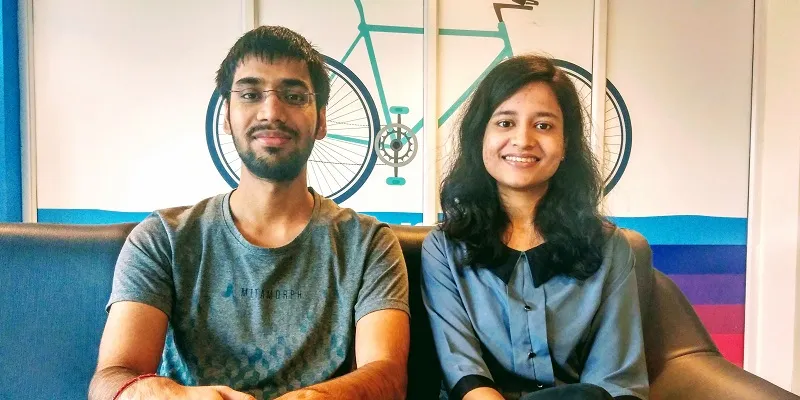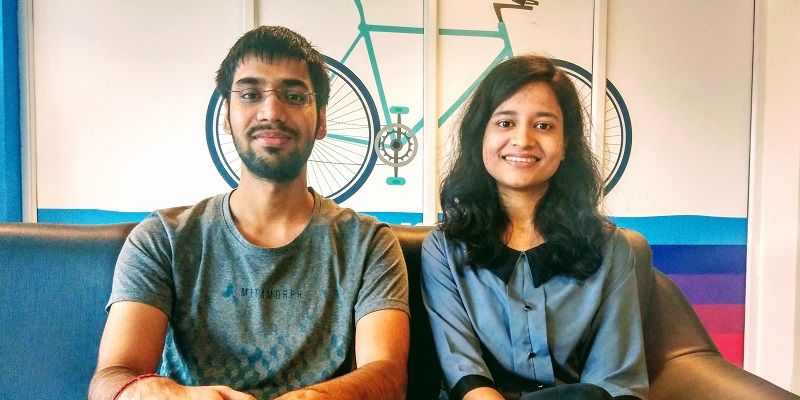Crowd-sourced content discovery platform for languages Clorik is changing how Indians consume content
With 90 percent Indians more comfortable in regional languages, AI-powered Clorik is using NLP to simplify discovery by categorising content based on interest and language. The app has been downloaded 2,000 times till now and the startup is eyeing many more downloads.
Amara Barani is an Uber driver who uses several apps to discover content in Hindi. He usually reads news snippets that are curated and shortened at BPO-type jobs for an app. He recently discovered Clorik and realised that the content is curated based on his interest. His current interests are gym workouts and politics in his home-town in Uttar Pradesh. “I feel this app knows what I want to watch or read,” says Amara, who’s based in Bengaluru.
Clorik, a crowd-sourced discovery platform for content in Indian languages, wants to automate content curation and take on Awwesummly, NewsRepublic, ViralShots and InShorts.
The media app is founded by IIIT-Allahabad students from the batch of 2013.

Shivani Maheshwari, 25, and Sunil Kumar, 25, worked in places like Yahoo and Flipkart before deciding in 2015 that they needed to address a fundamental issue in the media business – crowdsourcing great content in local languages without needing human intervention to summarise and ready it for an app. Their premise was simple and they are going after it with surgical precision. Since not more than 90 million Indians can speak English it is imperative that they create algorithms that can pick and curate local languages.
Clorik is currently training their engine to understand Hindi before moving on to other local languages.
The Clorik difference
So how does Clorik differ from other apps out there? Clorik is an online platform to discover content based on interest. Its users choose their interests and preferred languages to get content based on relevance. The 2.5 MB Android app uses in-house technologies that stream videos on weak internet connections. The founders have built an in-app lite mode and it even works offline.
Shivani Maheshwari, Co-founder of Clorik, says, “Our natural language processing program has been trained over the last two years to curate content based on people's viewing and reading needs in local languages.”
The app helps people find content of their choice, be it news, facts, stories, health tips, memes, jokes, funny videos and more. The many communities include News, Entertainment, Sports, Interesting, Inspiration, Jobs, Puzzles, Poetry, Photography, Romance, Cooking, Stories, Dance, Devotional, Crafts, Arts, Gaming, Business, Fitness, Technology and Humour.
The app and website offer a clean user interface, smart moderation tools, the latest in-house technologies and continuing R&D.
The birth of Clorik
Sunil and Shivani used to meet regularly in Bengaluru in 2014, and often deliberated on the impact of machine learning and artificial intelligence. They thought about several applications to use these technologies. That’s when they realised that the idea of using AI could be applied to the backgrounds they came from. Both of them came from small towns and did not have a natural propensity towards English, which is why they considered building a media business that could automate content relevant to the user.
Today, it is very easy to build AI on current platforms because they all understand English. But it’s a challenge for the machine to learn to curate massive data sets in local languages.
Sunil Kumar, CTO and Co-founder of Clorik, says: “The simple answer is that there is no data for the machine to learn from in local languages and we intend to change that.”
The duo set up the company in April 2015 and began to work wholeheartedly on this project. In two years, they have thousands of downloads of the Clorik app. How does the app work? Anyone can post videos in Hindi; they are curated by the engine to reach out to people with similar interests.
The company’s founders put in all their savings to build the product and their vision is to keep costs low. They will raise money once the app reaches a scale of more than 50,000 users and has traction of content shared by their users.
The future is bright
According to research firm Markets and Markets, the natural language processing (NLP) market is currently $7.5 billion in size and will double by 2021. Maximum applications will be in manufacturing, healthcare, media and retail.
Clorik wants to explore several business models. It can look at an advertising model and a content creation engine for brands that want to use video as a premium method of communicating with their audience. The Clorik platform will provide them with audience analytics and target local language speaking customers.
Shivani and Sunil have the right skills for this because they have built NLP platforms in companies like Yahoo and Flipkart. Remember that only Google is spending enormous amount of time to build interfaces in local languages and their search engine is built to understand how search happens in local languages. Today the machines are yet to understand vernacular language text since the entire internet is in English, European languages, Chinese and Japanese.
Clorik is betting on a larger game by making machines understand local languages and they understand that India is a large vernacular market that is waiting to go digital. According to the Census of India , 75 million people speak Telugu, 75 million Tamil, 83 million Bengali and 400 million Hindi.
Companies like BicycleAI, Agara Labs, Bottr.me, TargetingMantra, HyperVerge, InvenZone and AdElement are working on NLP-based programs. The NLP bets today are all on English, which means all the understanding of the textual data — by the machine — is in English.
Naganand Doraswamy, CEO of IdeaSpring Capital, says: “These are consumer businesses and have to work with brands on B2B payment model."
That said, machine learning and AI are the future, and startups like Clorik are building the right data sets in local languages to get 1 billion Indians onto their platform.







